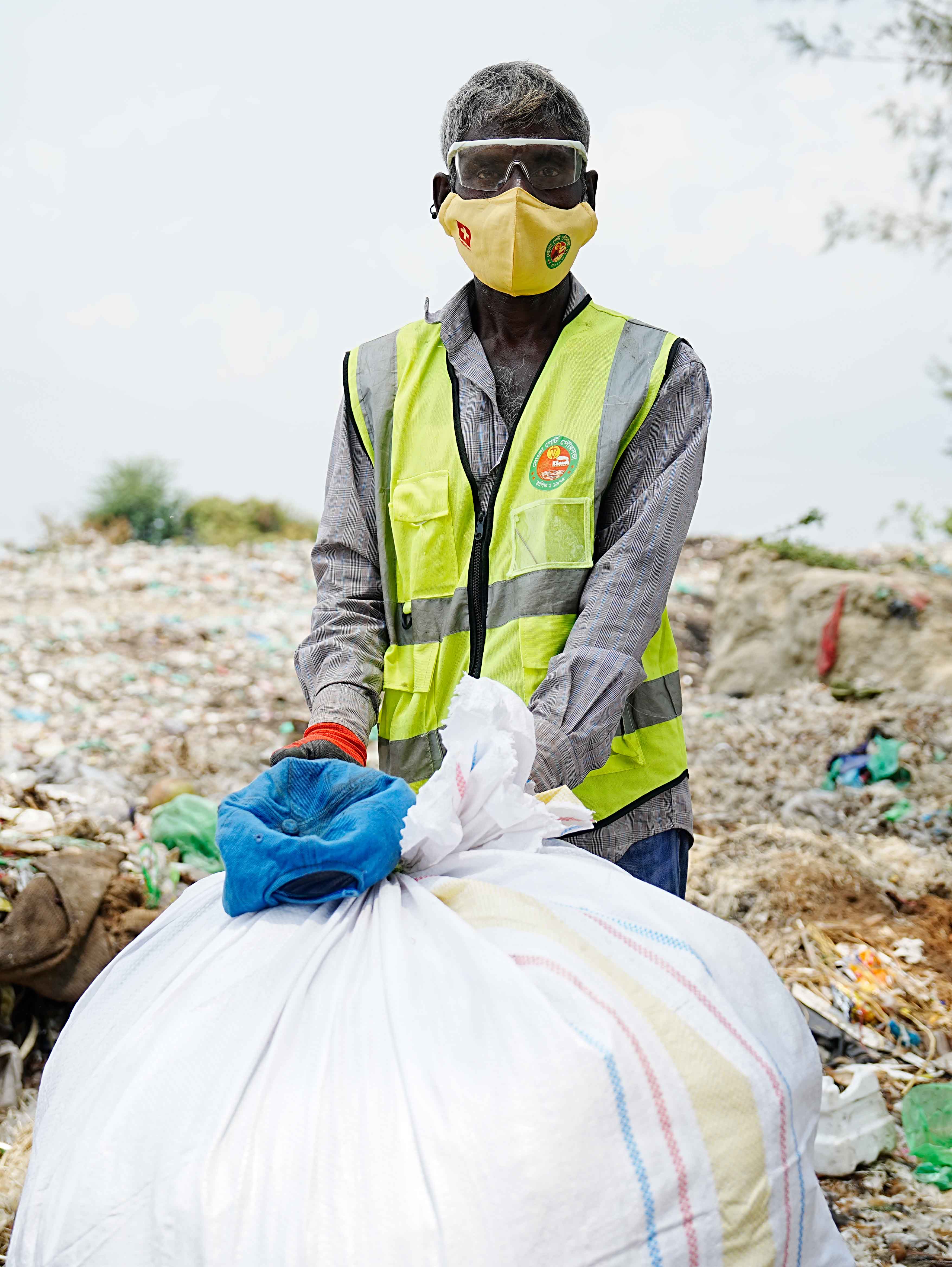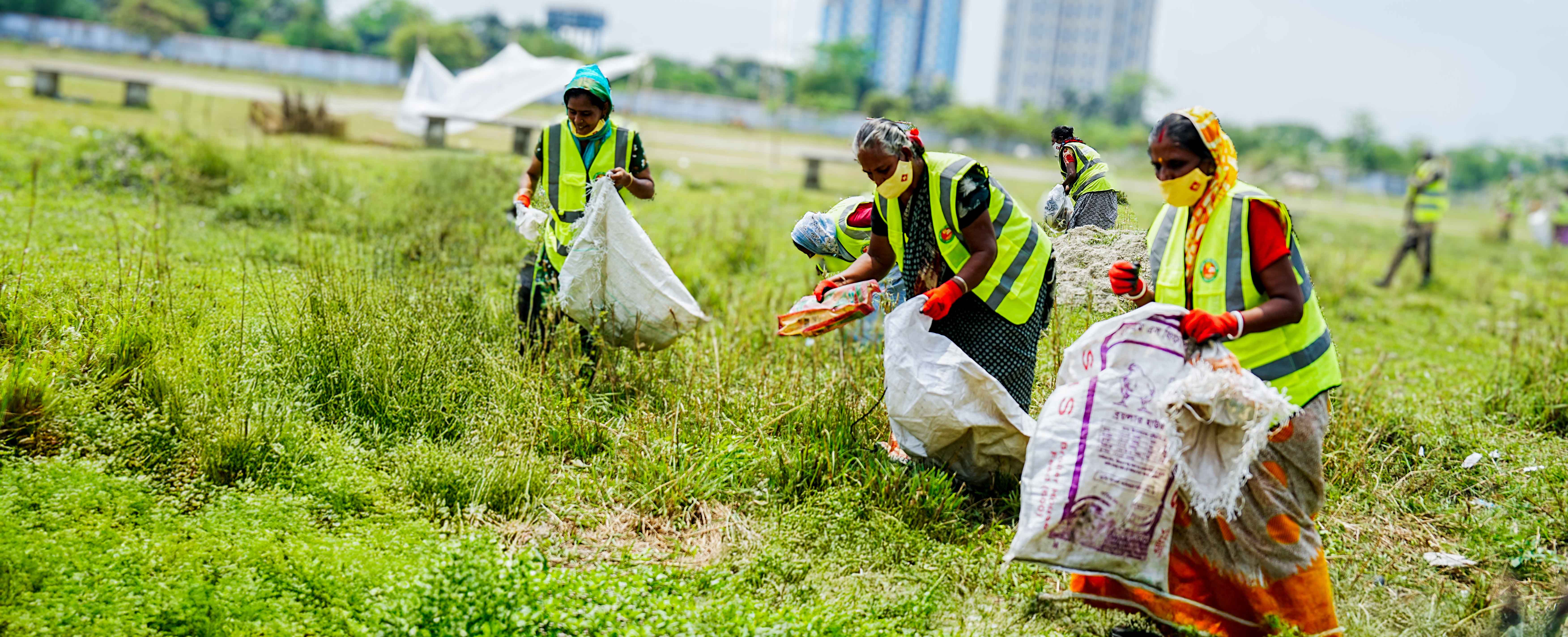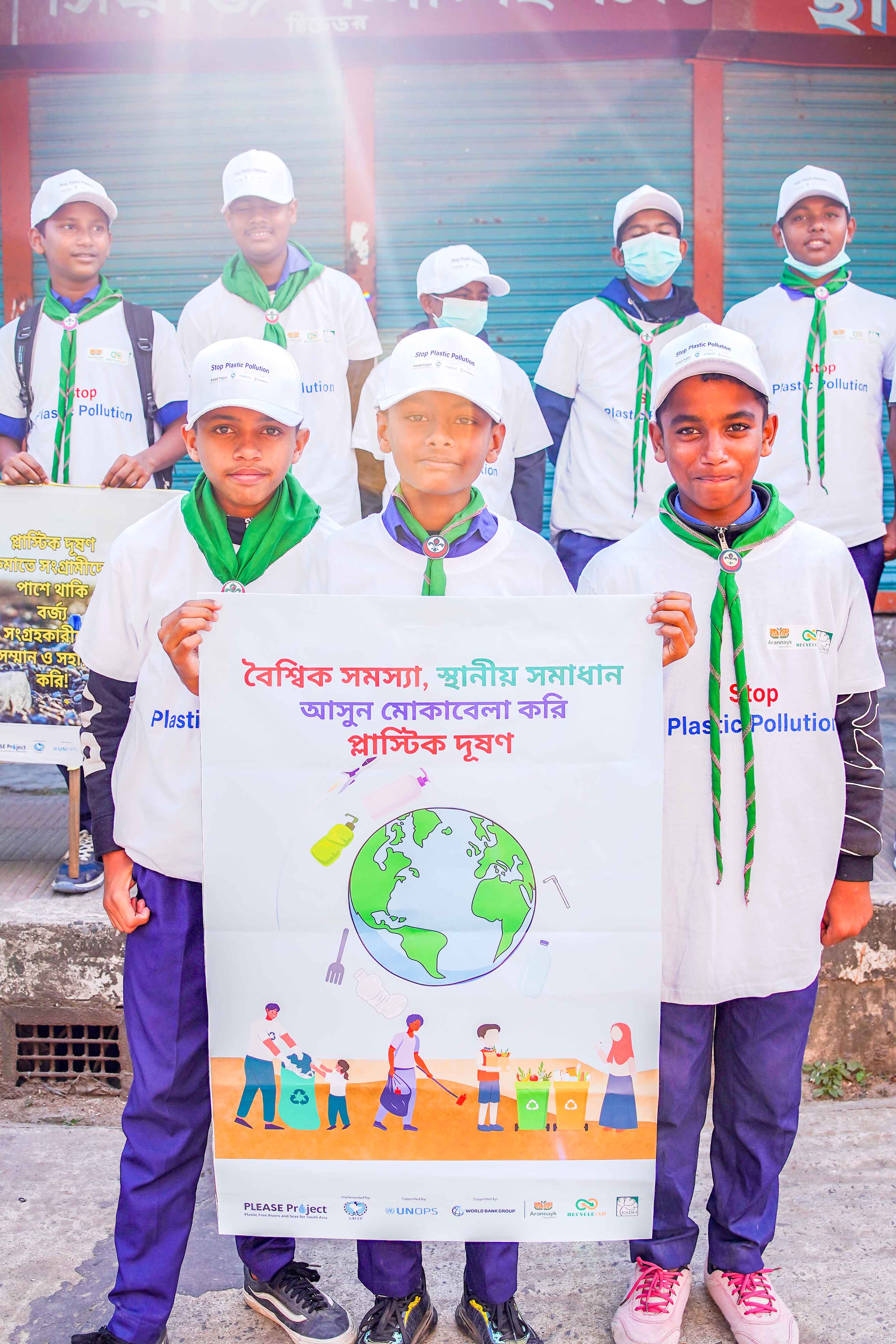From city drains in Dhaka to the beaches of Cox’s Bazar, Plastic has seeped into every corner of Bangladesh. Consumption has tripled in 15 years, while recycling remains stalled. Global treaty talks keep breaking down, but Bangladesh cannot wait, we cannot wait, you cannot wait.
A plastic bottle thrown into a drain in Dhaka today may still be here in 450 years. It will not break down. It will only fracture into smaller and smaller pieces.
Plastic is everywhere. From crowded city lanes to coastal mangroves. In our markets, rivers, homes, and hands. What was once a promise of convenience has become a permanent pollutant.
A Tidal Problem
Plastic use in urban Bangladesh has tripled in 15 years.
In 2005, it was around 3 kg per person.
By 2020, it hit 9 kg (ISHR, 2025).
In Dhaka, the figure is far higher- 24 kg per person annually (ISHR, 2025). Most of it isn’t recycled. It is dumped, buried, or washed into rivers.
Bangladesh is now the sixth-largest contributor to marine plastic via rivers and canals.
— Hossain et al., 2024
In Cox’s Bazar, home to both fishermen and tourists, 34.5 tonnes of plastic waste are mismanaged every single day (BRAC, 2024).
A study by ESDO found that Bangladesh consumes 3.15–3.84 billion single-use plastic bottles annually. Only 21.4% are recycled (The Business Standard, 2024).
 A waste collector's sack filled with single-use plastics collected from a dumpsite in Mongla. © AF/Arifur Rahman
A waste collector's sack filled with single-use plastics collected from a dumpsite in Mongla. © AF/Arifur RahmanThis is a global problem. But the world can’t agree on what to do.
In August 2025, the latest round of UN treaty talks collapsed in Geneva. Negotiators from 185 countries failed to agree on whether to reduce plastic production or just manage the waste (AFP, 2025).
Bangladesh rejected the draft outright.
This text does little to protect human health or the environment.
— Bangladesh Ministry of Environment, 2025
Officials criticized it for lacking real commitments, excluding harmful chemicals, and ignoring producer responsibility.
Meanwhile, plastic production keeps rising. Globally, more than 400 million tonnes of plastic are produced every year. By 2060, that figure could triple, while annual waste could exceed 1 billion tonnes (OECD, 2025).
What’s Working Elsewhere?
Germany: Deposit-Return System
Consumers pay a small deposit on bottles and cans and get it back when they return them.
Result: Over 98% of PET bottles are returned (Deutsche Welle, 2022).
France: Plastic Tax and EPR
France taxes unrecyclable packaging and rewards better design through Extended Producer Responsibility (EPR).
Result: Companies are shifting to recyclable materials (OECD, 2022).
Rwanda: Ban on Plastic Bags
Since 2008, plastic bags have been banned nationwide. Enforcement is strict, but effective.
Result: Kigali is now one of the cleanest capitals in Africa (UNEP, 2018).
Bangladesh: Policy and Practice
Bangladesh has laws, but enforcement gaps limit their impact.
The Ministry of Environment, Forest and Climate Change (MoEFCC) and the Department of Environment (DoE) oversee policy, while city corporations handle waste collection. Yet major weaknesses remain, including no segregation at source and low formal collection rates.
 Waste collectors clean a field during a PRISTINE project cleanup campaign in Mongla © AF/Arifur Rahman
Waste collectors clean a field during a PRISTINE project cleanup campaign in Mongla © AF/Arifur RahmanArannayk Foundation works where plastic meets people.
The goal is simple: keep plastic out of forests, rivers, and the sea. Do it with data, dignity, and local pride.
Field pilots that build a circular flow
In Mongla, under the PRISTINE project, Arannayk and partners trained 100 waste collectors, including 75 informal workers, to sort and prepare single-use plastics for sale.
A phone app, WASTEX, tracks what gets collected, who did the work, and where it goes. This improves safety, transparency, and payment—and creates data that can guide national policy.
Public art that changes what people see
In Cox’s Bazar, under the EARTH project, beach plastic was transformed into a giant sea turtle sculpture. Families stopped to look. Schools asked questions. The message was simple: turtles mistake plastic for food, and so do fish. The sculpture turned a cleanup into a lasting conversation.
Policy voice that links riverbanks to the capital
In June 2023, Arannayk co-hosted a national seminar on plastics in forests and natural ecosystems. Speakers called for a ban on single-use plastics in the Sundarbans and Saint Martin’s, and for redirecting finance toward eco-friendly alternatives.
These proposals echo global recommendations: target the items that leak most, and fund the systems that stop leakage.
 School children also joined PRISTINE project's advocacy campaign © AF/ESDO/Tanvir Pranto
School children also joined PRISTINE project's advocacy campaign © AF/ESDO/Tanvir PrantoPut Extended Producer Responsibility (EPR) into Practice: A binding EPR law must go beyond paper commitments. Producers and importers of plastic packaging should be required to register, pay fees, and meet collection targets. These funds should flow back into municipal systems for waste segregation, recycling infrastructure, and innovation grants. Tracking progress will depend on a transparent national producer registry
Enforce and Expand Bans on Harmful Plastics: Bangladesh banned polythene bags in 2002, but weak enforcement has kept them in circulation. Strengthening this ban and expanding it to cover sachets, straws, and selected single-use bottles is critical. Enforcement should combine market inspections with clear penalties, and financing should come directly from EPR revenues.
Launch a National Deposit-Return System for PET Bottles: Global evidence shows that small refundable deposits drastically raise return rates. A modest Tk 5 deposit on PET bottles, managed through retail and collection hubs, would not only reduce litter but also strengthen the recycling economy. The system should be piloted in Dhaka and Chattogram before scaling nationwide.
Recognize and Integrate Informal Waste Workers: Waste collectors already recover a significant share of recyclables. Municipalities should formalize their role through contracts, digital ID systems, and access to protective equipment. Financing can come from producer fees under EPR. Recognition of waste workers is not just a social obligation, rather it is an economic efficiency.
Build a National Plastics Data and Tracking System: Policy without data is guesswork. Bangladesh needs a national plastics registry that tracks production, imports, collection, and recycling flows. Such a system, backed by digital tools like WASTEX, would allow regulators to see where leakage occurs and to enforce obligations more effectively.
Invest in Public Awareness and Behavior Change: Laws alone cannot shift consumption. Sustained public campaigns—using schools, religious institutions, and media—should highlight both the health risks of microplastics and the benefits of reusable alternatives. These campaigns must be financed by producer obligations under EPR, not by overstretched public budgets.
Support Circular Alternatives and Innovation: Small and medium enterprises are experimenting with reusable packaging, biodegradable materials, and plastic-free delivery models. Government and donors should provide seed grants and procurement incentives to help these alternatives scale. Pilots must move beyond single cities to prove commercial viability.
Plastic is not just waste. It is a measure of the choices we make and what we leave behind.
Bangladesh has shown both resistance and resolve—from rejecting a weak treaty in Geneva to testing new local solutions in Mongla and Cox’s Bazar.
The way forward is clear: smarter rules, stronger enforcement, and communities at the center. Each bottle collected, each ban enforced, each worker recognized is a step toward cleaner rivers.
Plastic will not disappear tomorrow. But with courage, data, and persistence, we can build a future where rivers carry fish, not fragments.
* The opinions expressed here are the author’s own and do not represent the official views of Arannayk Foundation.
Comments